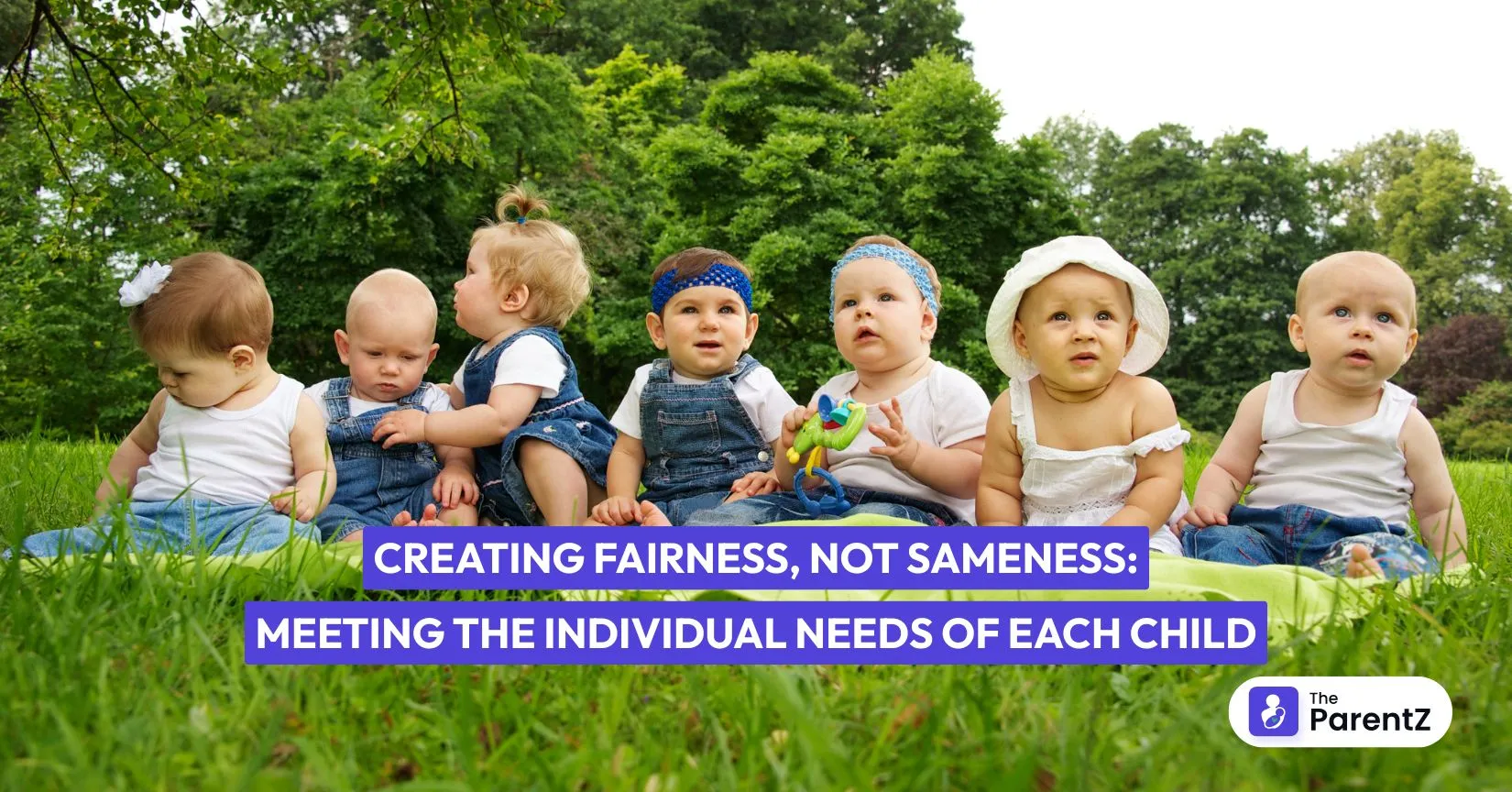Picture this: Your 8-year-old comes home from school upset because their younger sibling got a new toy and they didn't. "That's not fair!" they cry. Sound familiar? Most parents face this scenario regularly, and it perfectly captures one of parenting's biggest challenges – understanding the difference between fairness and sameness.
Fairness vs. Sameness
Here's something many parents struggle with: fair doesn't mean treating every child exactly the same way. Think of it like shoes – you wouldn't give all your children the same size shoe, would you? A size 3 shoe on a child who needs size 6 isn't equal treatment; it's actually harmful.
The same principle applies to everything else in parenting. True fairness means giving each child what they need to thrive, not giving everyone identical treatment. When parents try to make everything "equal" by treating all children exactly the same, they often end up being unfair to everyone.
Why We Get It Wrong So Often
Parents naturally want to avoid conflict and prevent the dreaded "that's not fair" complaints. So they default to sameness, thinking it's easier. Everyone gets the same bedtime, same allowance, same consequences, same privileges. But this approach misses something crucial – children are individuals with different needs, personalities, and developmental stages.
A 15-year-old and a 10-year-old don't need the same bedtime. A child who struggles with organization needs different support than one who's naturally tidy. A sensitive child might need gentler discipline than a more resilient sibling. Treating them all exactly the same isn't fair – it's actually neglecting their individual needs.
What This Looks Like in Real Life
- Bedtimes: Instead of everyone going to bed at 8 PM, consider what each child actually needs. The 6-year-old might need 8 PM, while the 12-year-old could handle 9 PM. Explain to them that bedtimes are based on age and individual sleep needs, not arbitrary rules.
- Chores and Responsibilities: Give age-appropriate tasks that match each child's abilities. The teenager can handle laundry, while the 8-year-old manages feeding the pet. Both are contributing meaningfully to the family.
- Discipline: Some children respond to a quiet conversation, while others need firmer boundaries. What matters isn't using identical consequences but ensuring each child learns and grows from their mistakes.
- Academic Support: One child might need extra help with math tutoring, while another excels in math but struggles with reading. Meeting their individual academic needs isn't favoritism – it's good parenting.
- Emotional Needs: The quiet child might need one-on-one time to open up, while the social butterfly thrives in group activities. Both need connection, just in different ways.
Common Challenges and How to Handle Them
- "But that's not fair!" When children complain about different treatment, use it as a teaching moment. Explain that fair means everyone gets what they need; not everyone gets the same thing. Use examples they can understand: "We don't all eat the same amount at dinner because Dad needs more food than your little sister, right?"
- Sibling comparison: Children will naturally compare their treatment to their siblings. Acknowledge their feelings while reinforcing that families work best when everyone's individual needs are met. "You're right that your brother got something different. That's because he has different needs than you do."
- Consistency concerns: Parents worry that individualized approaches will seem inconsistent. The key is being consistent in your values and principles while being flexible in your methods. Your core values (kindness, respect, responsibility) remain the same, but how you teach and reinforce them can vary.
The Impact on Children
When children experience true fairness rather than forced sameness, beautiful things happen. They learn that their individual needs matter. They develop empathy by understanding that others have different needs, too. They feel seen and valued for who they are, not compared to their siblings.
Children who grow up with this understanding become adults who can navigate a diverse world with compassion. They understand that treating people fairly sometimes means treating them differently. They become better friends, partners, and eventually parents themselves.
Making the Shift
Start small. Notice where you've been defaulting to sameness and ask yourself: "What does each child actually need here?" Have family conversations about fairness versus sameness. Help your children understand that love isn't measured by identical treatment but by how well their individual needs are met.
Conclusion
You're not raising identical children – you're raising unique individuals who happen to share a family. Each deserves to be seen, understood, and supported in their own way. That's not just fair parenting; that's love in action.
Your children don't need you to treat them exactly the same. They need you to see them as individuals and love them accordingly. And that makes all the difference in the world.





Be the first one to comment on this story.